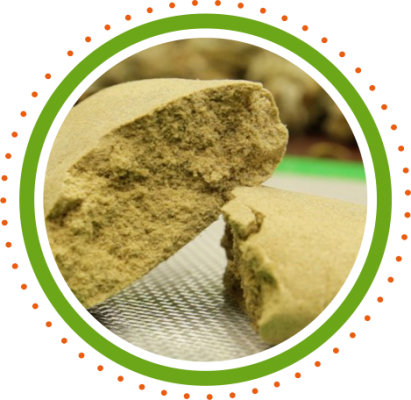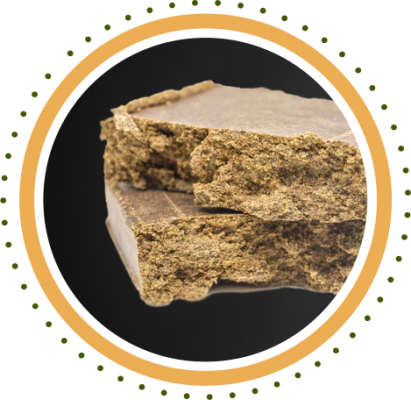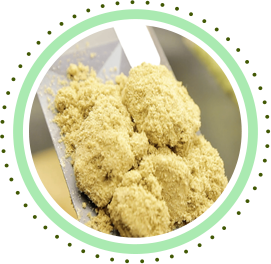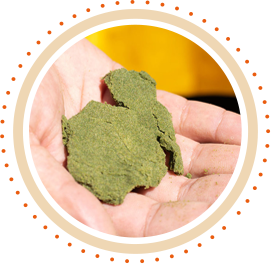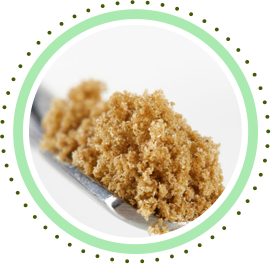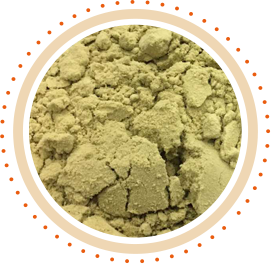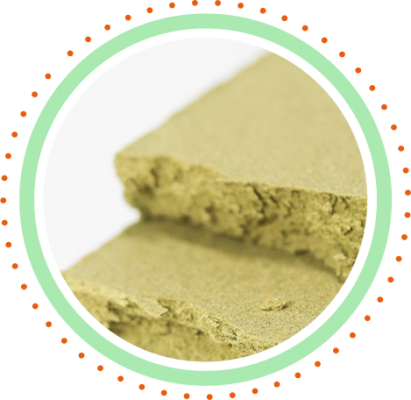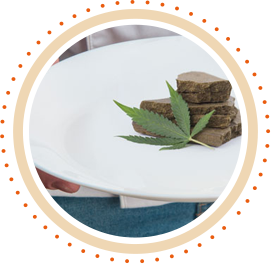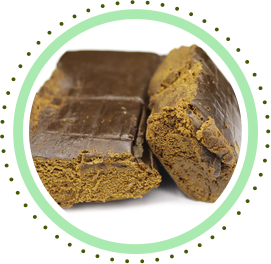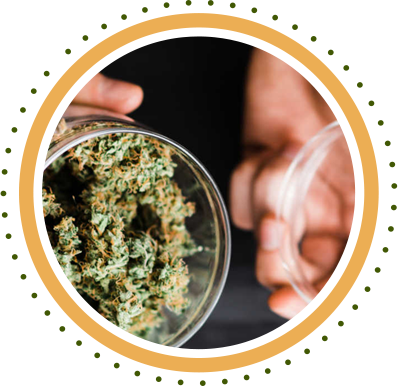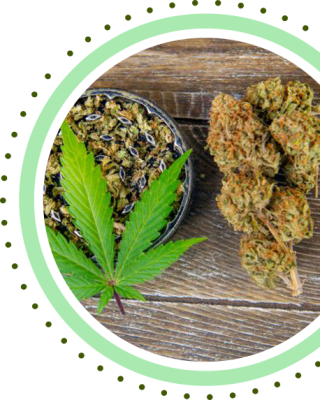Main Terpenes Found in Cannabis
Myrcene
Cannabis produces a large quantity of this terpene which is known for its musky and somehow also fruity aroma. It has a sedating effect for the ultimate chill.
Limonene
This is the second most prolific terpene. This terpene can also be found in citrus fruits such as lemons and the like. The flavour and smell of lemons are specific to this terpene. It has a stress reducing effect.
Pinene
This terpene can also be found in pine trees. This terpene has been shown to increase alertness and memory retention.
Caryophyllene
A spicy, sharp undertone is characteristic of this terpene. It can also be found in spices such as rosemary and cinnamon. It is a terrific stress reliever. This terpene also acts as a cannabinoid.
Linalool
This is the hallmark smell of weed that most people associate with someone smoking marijuana nearby. It is a mood enhancer as well as a sedative to help you chill.
Terpinolene
Also found in lilacs and nutmegs, this terpene has a fruity smell that can increase your energy levels.
Bisabolol
This terpene is used by the beauty industry for its pleasing, floral smell. Bisabolol also can be used in first aid as pain relief for injuries.
Effects of Hash
Our hashish guide breaks down the variety of effects hash can have on those who partake. Marijuana legalization efforts have led to stronger strains, in fact, much stronger than those of a few decades past. Legality also means that cannabis research will expand like never before. The Research Centre for Cannabis is one example of a research firm exploring the benefits and drawbacks of marijuana.
Positive Effects of Hash:
- Stress Relief
- Happiness
- Enhanced Mood
- Creative Inspiration
- Appetitie
- Euphoria
|
- Focus
- Energy
- Laughter
- Increased
- Sleepiness
|
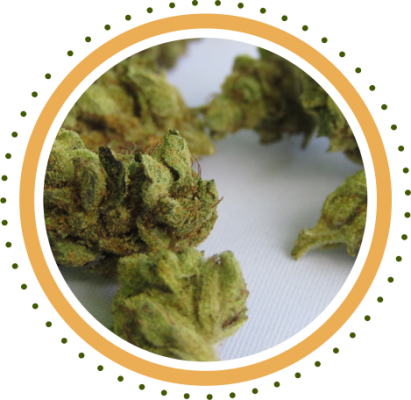 Medical Benefits of Hash
Medical Benefits of Hash
A guide to hash would not be complete without mentioning the various medical conditions hash can benefit. Please note that before using hash for medicinal purposes, it is best to consult with your doctor.
Some of the most well known medicinal benefits of hash are relief from chronic pain, alleviation of depression, and help for cancer patients who have to deal with the side effects of treatment. Hash can also help with epilepsy as this study shows. Hash also benefits diabetics and can help with weight control as THC helps the body manage insulin. Cannabis has also been found to assist in the brain’s recovery from a stroke.
Other Common Uses for Hash in the Medical Field:
- Soothes Muscle Spasms
- Treats Insomnia
- Reduces Inflammation
- Used in Glaucoma Treatment
- Treatment for PTSD
- Treatment for ADD / ADHD
- Used to Fight Fatigue and Increase Appetite
- Treatment for Autoimmune Diseases
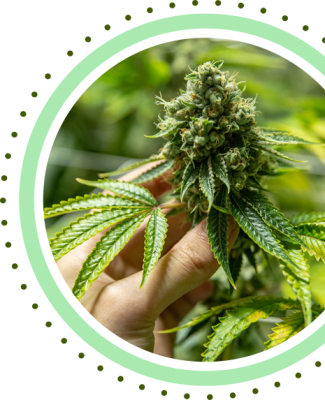
Negative Side Effects of Hashish
Like all things, hash can be misused or overused. Overuse or long term abuse of hashish may lead to a lack of motivation which can affect your relationships, your work, your health, and your personal life. Other negative side effects can include disorientation, decreased coordination, increased heart rate, possible panic attacks, and distorted senses (sight, sound, touch, etc). Long term over use of hash may also cause respiratory problems especially during the cold months.
We want to include all the facts in our hash guide, as well. Addiction to hash is possible, so controlled use is of the utmost importance. Hash use is not advised during pregnancy as it can increase chances of complications and / or stillbirth.
The Most Common Unwanted Side Effects from Hash:
- Bloodshot Eyes
- Lethargy
- Paranoia
- Headache
- Increased Heart Rate
- Drop in Blood Pressure
- Dizziness
|
- Agitation
- Sleepiness
- Lack of Coordination
- Respiratory Issues from Smoke
- Decreased Memory
- Chest Pain
|
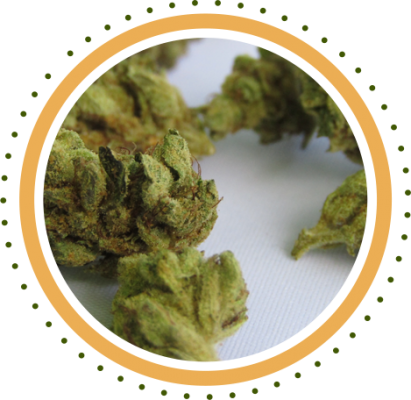 Hash Guide:
Hash Guide:
How Long Will Hash Be In My System?
THC enters the body quickly within about 30 minutes. Absorption rate depends on the THC concentration and how the hash is consumed or taken.
Recreational hash users may experience an impairing high for up to 6 hours during which time they should not drive or operate any other vehicle. A heavy user may retain residual effects of hash for up to 1 month or more after the last use. We’ve included in our hash guide a quick look at how long THC lingers in different parts of your body.
Hair
Drug tests using hair strands can detect THC for up to 90 days. This is the most accurate drug test for THC as it can detect the cannabinoid several months after stopping use.
Blood
THC is usually not found in the bloodstream as THC only lasts in the blood for 3 to 4 hours after use. A blood test would have to be extremely well timed to find THC in the blood.
Urine
THC can be detected in the urine 3 to 30 days after the last use. More frequent use will cause the THC to remain present in the urine longer.
Saliva
Hashish residue may remain in saliva for 1 to 3 days after use. Brushing your teeth and drinking plenty of water may wash the residue away faster.
Your Hashish Guide to The 5 Variables that Affect How Long THC Remains Detectable
1. How Often You Use Hash
The frequency of use is one of the biggest influencers on how long THC remains in the body. A first timer may retain traces of THC for approximately 3 days whereas a daily user of hash may retain THC in their body for about a month after stopping use. For moderate recreational users (3-4 times a week use, for example), THC may remain in the system for about a week.
2. Potency of Your Hash
How potent the hash is or how high the THC concentration is the second biggest factor in how long THC remains detectable via common drug testing methods. The more THC, the longer your body needs to metabolize it.
3. The Amount of Hash You Used
While potency is an important role player, the amount of cannabis you take in is crucial as well. If you only had a few hits, you will not have much THC in your system. The more you use however, the longer you will need to shed the THC from your system.
4. Method of Consumption
How you take your hash comes into play too. Edibles require the body digest the product before it can access the THC and metabolize it, therefore the THC can remain in your body for a longer period. Smoking a joint or vaping gets the THC into your system quickly, but likewise, it will leave your system faster.
5. Your Individual Body Chemistry
Hash like all drugs affects everyone differently. Your individual makeup will determine how you react to cannabis and how it affects you. THC also binds to fats in the body, so the fat percentage of the user will affect how quickly the THC is metabolized. Sometimes despite individual size people naturally have different tolerance levels and this will affect how fast THC leaves your system.


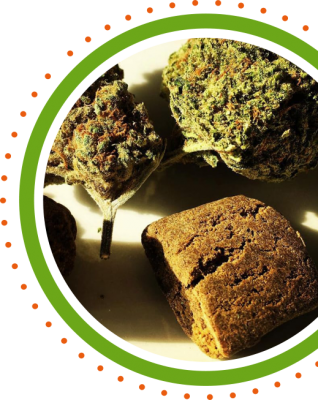 Origins of Hash
Origins of Hash









